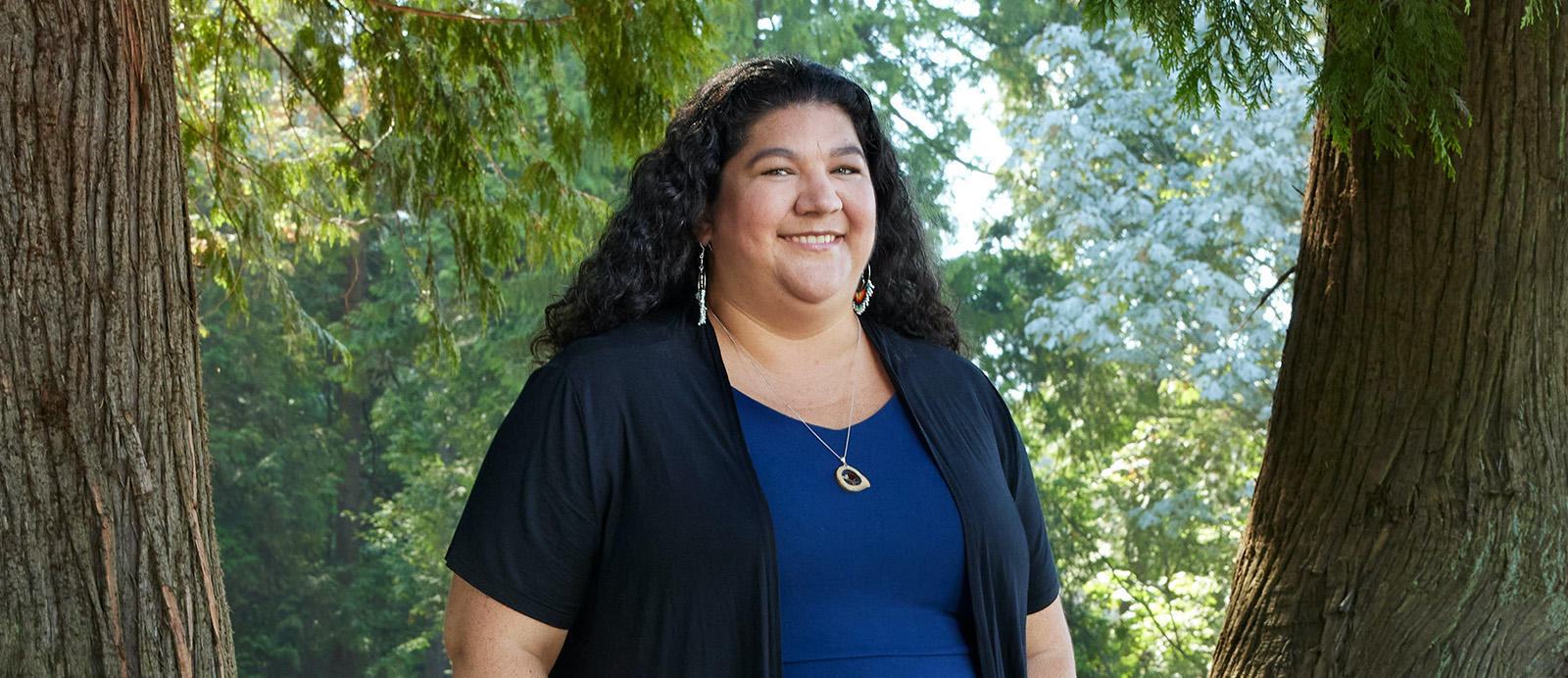
Change Can Happen. Profiles in community leadership: Rhiannon Bennett
Central City Foundation is once again celebrating eight examples of extraordinary community leadership. We are highlighting the dedication and determination of those whose support for community-led solutions helped people in our inner city and beyond and have demonstrated that change happen in our community. As part of this celebration, we have asked each of our profiled leaders to share with us their thoughts on leadership, community, and their relationship with Central City Foundation.
Rhiannon Bennett, Co-Founder & CEO, Hummingbirds Rising Consulting
This year, Central City Foundation is celebrating Rhiannon, a tireless activist, consultant, facilitator, trainer and educator, because she has been working to ensure individuals and organizations have the tools to decolonize their work and challenge systemic oppression.
Q: Can you tell us about the work you and your organization are doing in community?
I am a co-founder of Hummingbirds Rising Consulting, Ltd. (HRC). Along with my business partner, Andrea, we offer Decolonization audits for Canadian companies and organizations and facilitate Decolonization workshops for non-Indigenous Canadians. It’s important that Canadians know that the culture of Canada is inherently anti-Indigenous, and we teach people how to change their perspective and view things through a Decolonial lens. At HRC, we also offer one-on-one consultations for Indigenous people free of charge.
I also work with Feminists Deliver, which is a grassroots working group that does advocacy and support for the community, Deltassist’s Community Action for Equity and Racial Justice Committee, which is a spoke of the Resilience BC Anti-Racism Network, and I am the Vice-Chair of Kwantlen Polytechnic University’s Board of Governors.
Last month, both HRC and Feminists Deliver worked on submissions to the Ministry of Children and Family Development about stopping child apprehension as part of their upcoming policy changes.
Q: What does community leadership mean to you?
Getting rid of the table and ensuring that those who are affected by something are the ones who are being listened to.
Q: How would you describe the systemic inequalities/inequities and other challenges that your work addresses? ?
Equity is intersectional; my work addresses anti-Indigenous racism, which is directly connected to other forms of racism, and racism exacerbates other inequities (classism, ableism, sexism, homo- and trans-bigotry, etc.).
Q: How would you describe the importance of connection and belonging for the people you work with?
Connection and belonging are the most important foundational pieces of our work. The work we do at HRC is relational, not transactional, and I carry that into all of the work I do.
Q: Looking ahead can you share with us some of your thoughts about where you see the possibility that change can happen?
Inequity is systemic, and all oppressive systems are interconnected. It’s important to change the systems, but that often means starting at a personal level and teaching individuals how and why those systems work the way they do. This information is intentionally withheld from Canadians, and it is why we’ve chosen to teach it at Hummingbirds Rising.
Q: How would you describe the value of developing relationships and collaboration between your organization and organizations like Central City Foundation?
Collaboration with organizations like CCF are invaluable for HRC; it’s vital that we build relationships with other anti-oppressive organizations in order to build community within our organizations and be able to bring our shared values to the wider community.
Q: Do you have a call to action for our CCF community that you would like to share?
Read the following:
- The Truth & Reconciliation Committee’s Calls to Action
- Reclaiming Power and Place: The Final Report into the National Inquiry of Missing and Murdered Indigenous Women and Girls Calls to Justice
- Disaggregated Demographic Data Collection in British Columbia: The Grandmother Perspective
- UN Declaration on the Rights of Indigenous Peoples
- The Road to Safety: Indigenous Survivors in BC Speak Out against Intimate Partner Violence during the COVID-19 Pandemic
And then read some more and then action your learnings. And then pressure governments to implement the Calls and ensure they are fulfilling their duties as per UNDRIP.
 Previous story
Previous story
